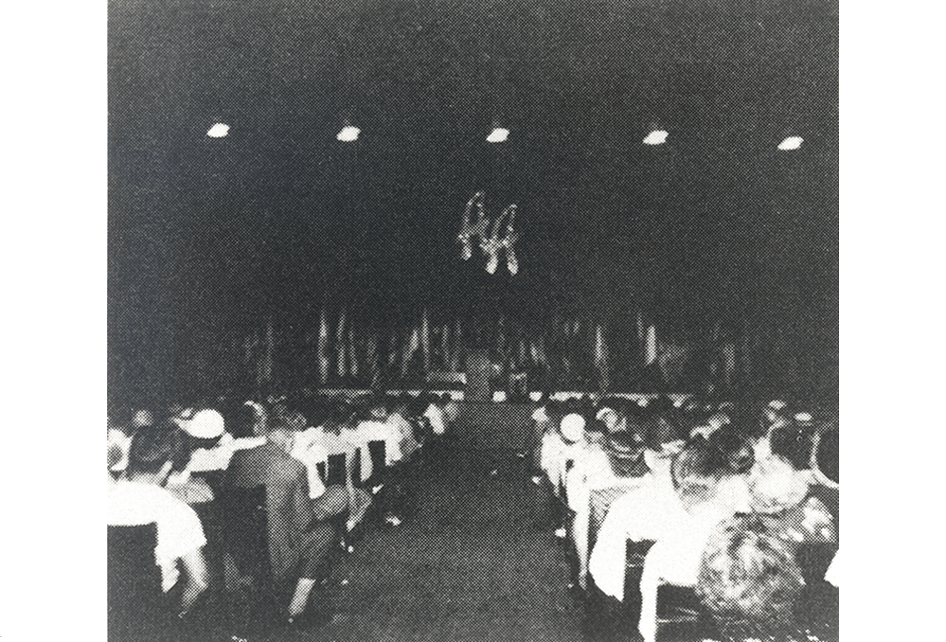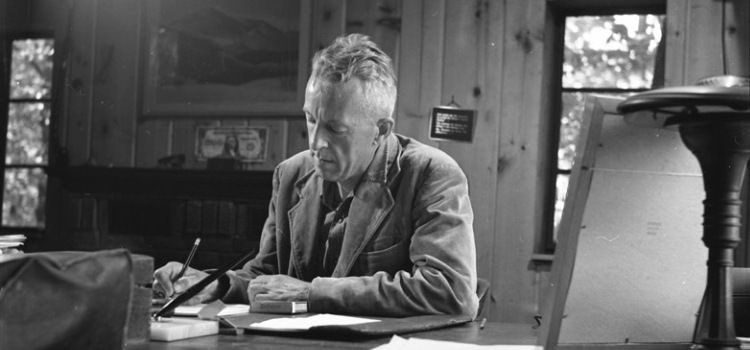In the depths of the Great Depression, America was a place of struggle and hardship. People were out of work, hungry, and burdened with despair. The once-vibrant social scene had become as lively as a tax audit. But in the midst of this bleak landscape, one man saw an opportunity where others saw only darkness. His name was Bill Wilson, and he was about to launch an idea that would change the lives of millions.
Bill Wilson wasn’t your typical success story. He wasn’t a wealthy businessman, a famous inventor, or a celebrated artist. In fact, by the time the Great Depression hit, Bill had already experienced his fair share of personal failures. A former stockbroker, Bill was also a man with a serious drinking problem. He had spent years bouncing between moments of sobriety and bouts of heavy drinking, trying and failing to kick his addiction.
But Bill was more than just a man with a drinking problem. He was also a seeker—someone who believed that there was more to life than what he was currently experiencing. He had tried various methods to stay sober, including medical treatment and even spiritual practices, but nothing seemed to work in the long term. Each time he got sober, he found himself surrounded by people who were still drowning their sorrows in alcohol, and before long, he’d be back where he started.
Then, one day, a simple yet powerful idea hit him like a bolt of lightning: What if people who were struggling with alcohol could help each other stay sober? What if there was a place where alcoholics could come together, share their experiences, and offer support to one another? It wasn’t about doctors or therapists; it was about regular people helping regular people. Bill decided to put this idea into action, and with that, Alcoholics Anonymous (AA) was born.
The Birth of Alcoholics Anonymous

In 1935, Bill Wilson teamed up with Dr. Bob Smith, another alcoholic who had struggled for years with his addiction. Together, they formed the first AA group in Akron, Ohio. The concept was simple: Alcoholics would gather in a circle, share their stories, and offer each other support and encouragement. There were no doctors, no lectures, and no judgment. It was just a group of people who understood the struggles of addiction and wanted to help each other stay sober.
What made AA different from other recovery programs of the time was its focus on the spiritual and emotional aspects of addiction. While many traditional programs emphasized willpower, medical treatment, or moralizing, AA took a different approach. It recognized that addiction wasn’t just a physical or psychological problem—it was a deeply spiritual one as well. AA members were encouraged to find a “higher power” that could help them overcome their addiction, whether that higher power was God, the universe, or something else entirely.
Another key element of AA’s approach was its emphasis on anonymity. In a time when addiction was often stigmatized and seen as a moral failing, AA offered a safe space where people could come and share their struggles without fear of judgment. Members were known only by their first names, and what was shared in meetings stayed in meetings. This anonymity helped create an atmosphere of trust and openness, where people could be honest about their struggles.
The Spread of Alcoholics Anonymous
Word of AA spread quickly, and soon, groups were popping up all over the country. People who had been struggling with alcohol for years were suddenly finding hope and support in these simple gatherings. The idea of alcoholics helping alcoholics resonated deeply, and before long, AA had become a nationwide movement.
What started as a small group in Akron soon grew into a worldwide organization. By the 1940s, AA had spread to other countries, and its membership was growing rapidly. The program’s success wasn’t just in the numbers, though—it was in the lives that were being changed. People who had once felt hopeless and alone were finding a sense of community and purpose in AA. They were staying sober, rebuilding their lives, and helping others do the same.
The genius of AA wasn’t just in its simplicity, but in its emphasis on connection. Bill Wilson understood that humans are social creatures, wired for community and belonging. He recognized that addiction often thrived in isolation, and that the antidote wasn’t just abstinence, but connection. By bringing people together and encouraging them to support each other, AA offered a powerful solution to a problem that had seemed insurmountable.
The Legacy of Bill Wilson and AA
Today, Alcoholics Anonymous is one of the most successful recovery programs in the world, with millions of members in over 180 countries. Its 12-step program has been adapted for use in many other addiction recovery programs, including Narcotics Anonymous (NA) and Gamblers Anonymous (GA). The principles that Bill Wilson and Dr. Bob Smith established in those early days have stood the test of time, and continue to offer hope and healing to people struggling with addiction.
But the true legacy of Bill Wilson isn’t just the organization he founded—it’s the idea that simple, human connection can be a powerful force for change. Bill understood that we are all in this together, and that by supporting each other, we can overcome even the most difficult challenges. He showed us that sometimes, the most powerful solutions are the simplest ones, and that the greatest genius of all is the ability to connect with others.
AA’s Continuing Impact
The impact of Alcoholics Anonymous extends far beyond the millions of individuals who have directly benefited from its program. AA has also changed the way society views addiction and recovery. Before AA, alcoholism was often seen as a moral failing or a lack of willpower. But through AA, people began to understand that addiction is a complex and multifaceted issue that requires a compassionate and holistic approach.
AA also played a crucial role in the development of the concept of peer support in recovery. Today, peer support is a fundamental component of many addiction recovery programs, and it all started with the simple idea that Bill Wilson and Dr. Bob Smith put into action in 1935.
Moreover, AA’s emphasis on spirituality has influenced many other areas of mental health and personal development. The idea that recovery involves not just physical or psychological change, but also spiritual growth, has become a central theme in many therapeutic and self-help practices.
Bill Wilson’s story is a reminder that sometimes, the most transformative ideas are the simplest ones. In a time of great despair, he saw an opportunity to create something that would bring people together and offer hope where there had been none. His idea of alcoholics helping alcoholics wasn’t just a solution to his own struggles—it was a revolutionary approach that would change the lives of millions.
Today, Alcoholics Anonymous continues to be a beacon of hope for people struggling with addiction. It’s a testament to the power of community, connection, and simple ideas. And it’s a reminder that, even in the darkest times, there is always the possibility of light.
Bill Wilson’s legacy lives on in the millions of people who have found sobriety and a new way of life through AA. His story shows us that sometimes, the greatest genius is not in inventing something new, but in recognizing the power of human connection. And in that, Bill Wilson truly changed the world.

